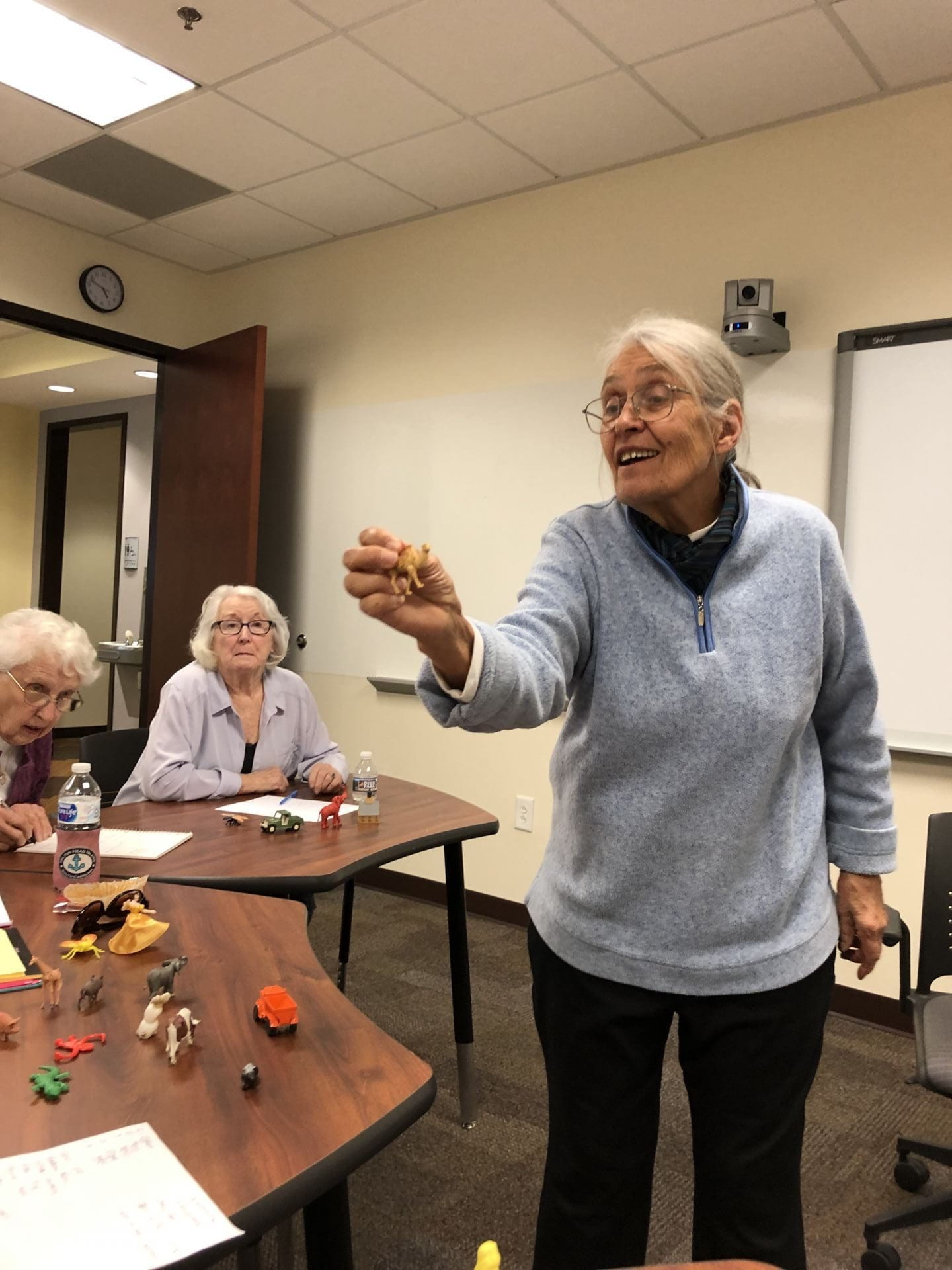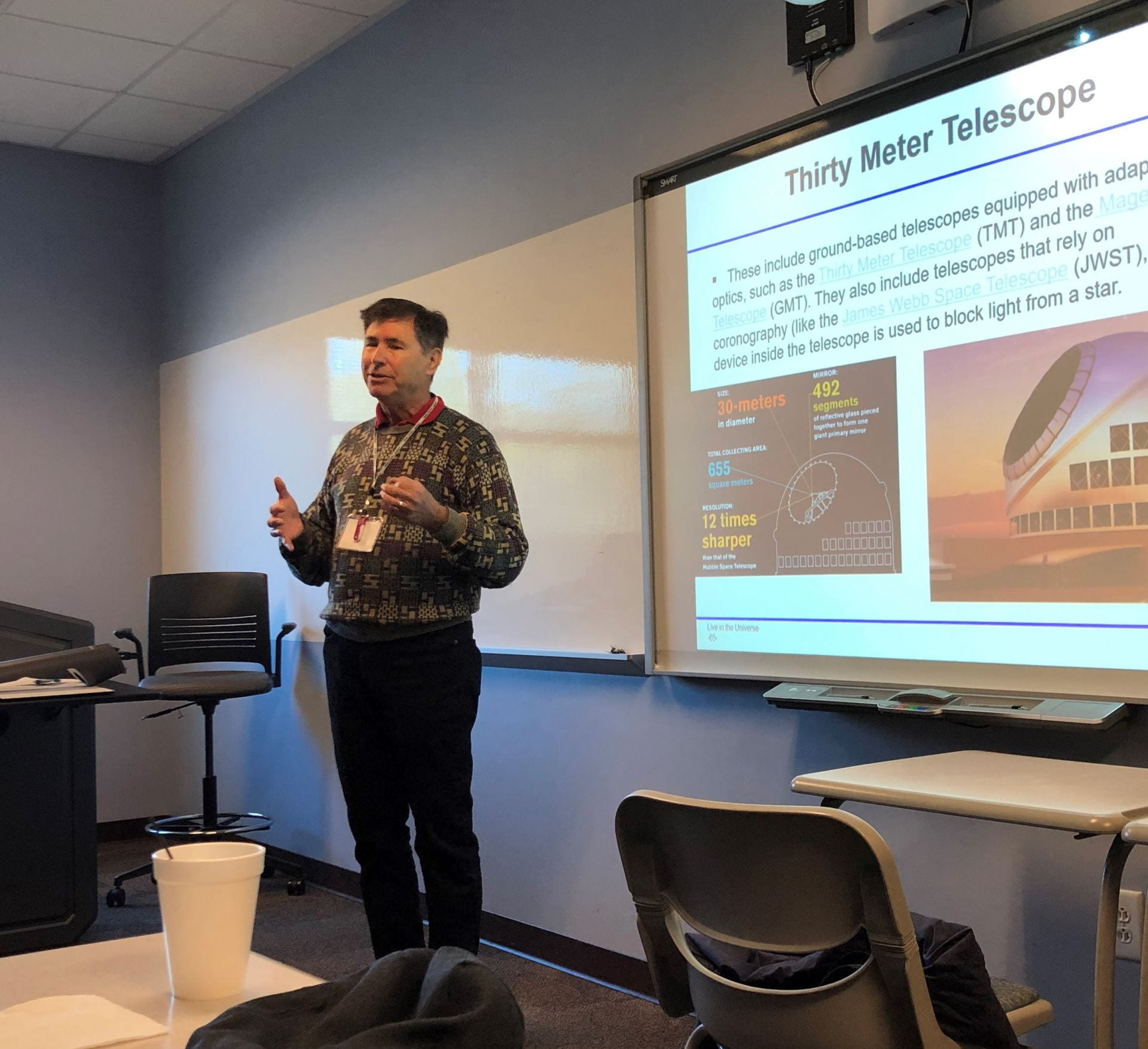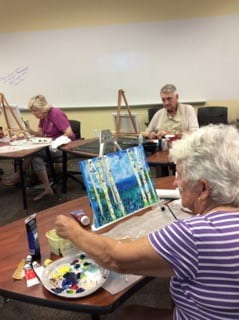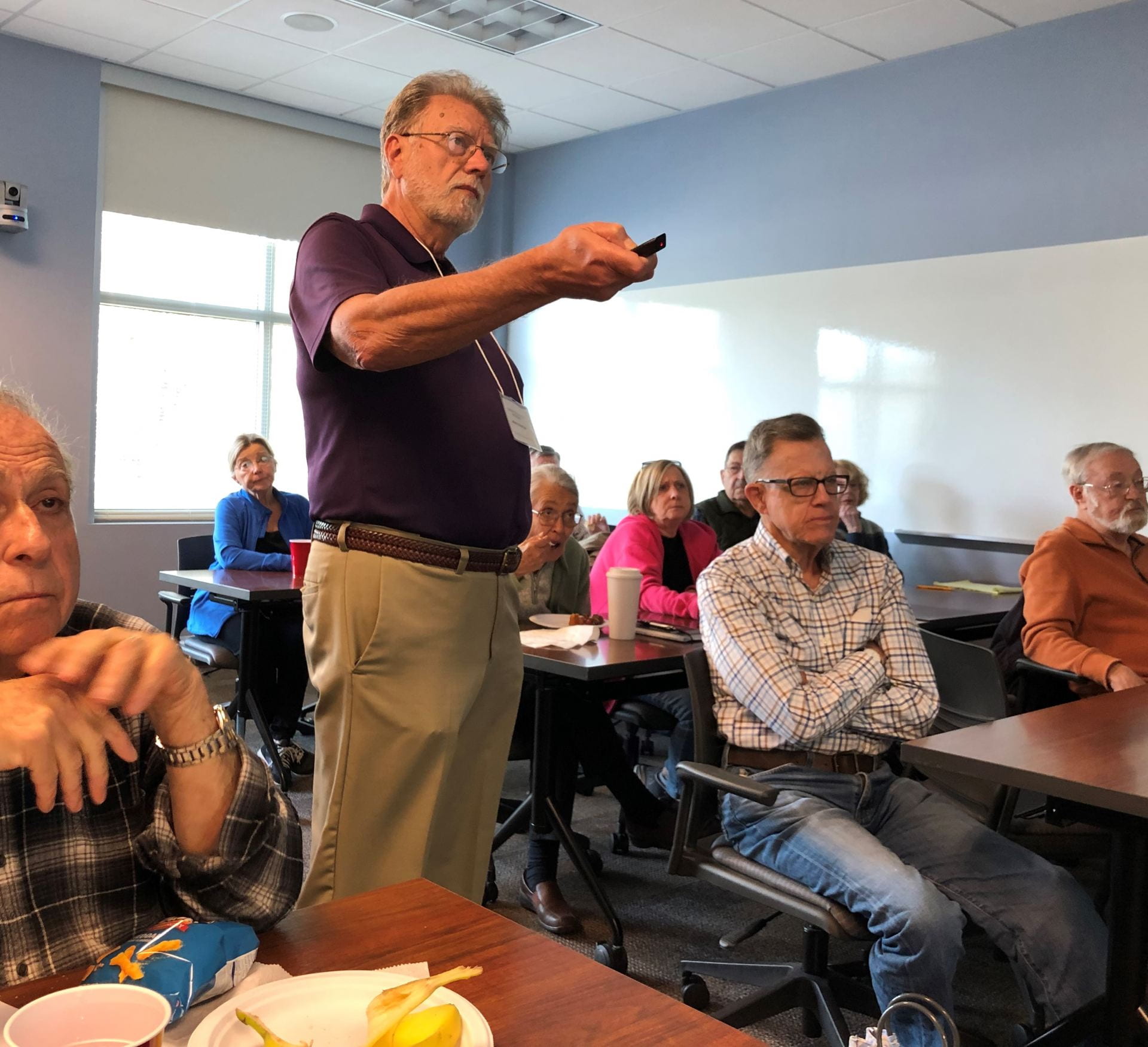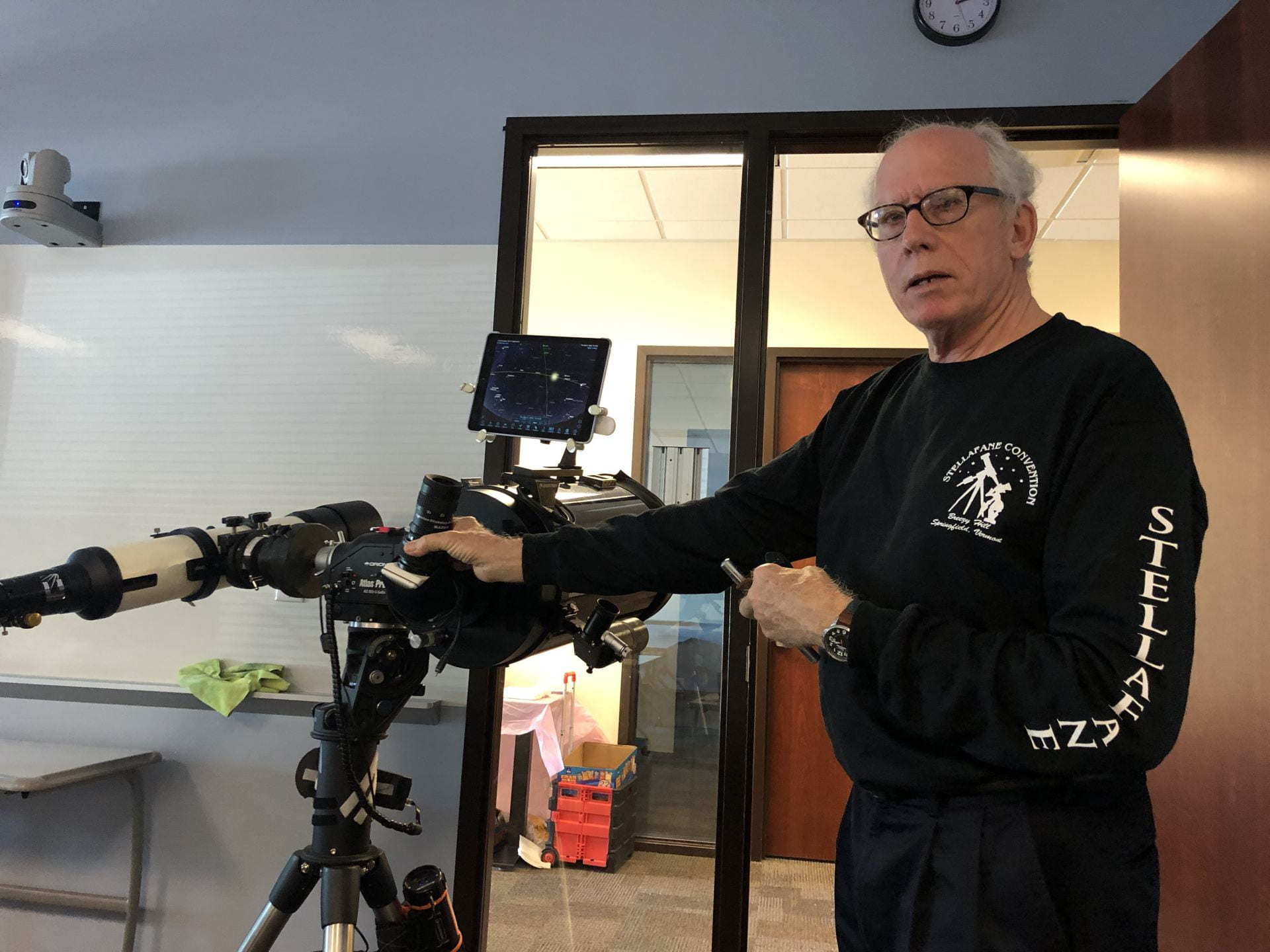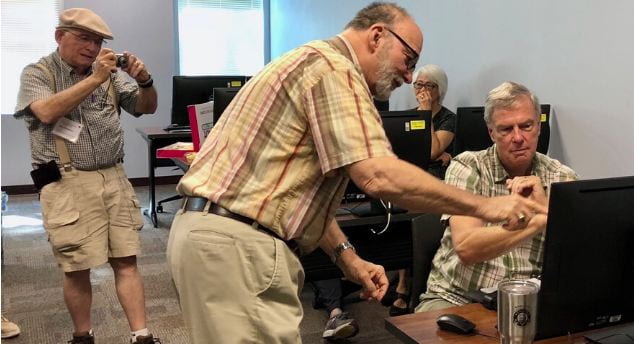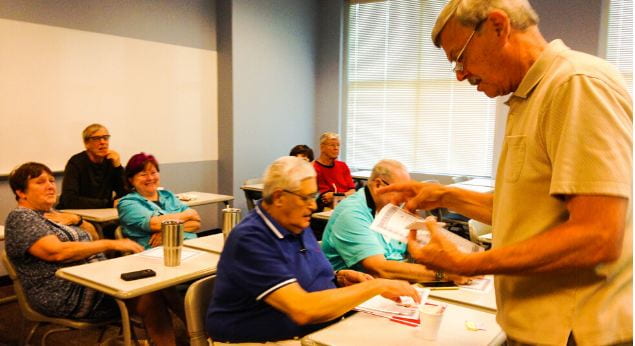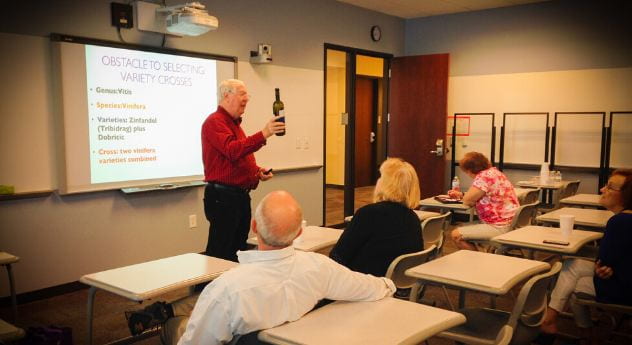Charleston Academy for Lifelong Learning (CALL) provides an opportunity to go back into a classroom with your peers, to facilitate a class or just to learn. It’s a great way to make new friends. You can choose to be on either side of the desk as experts share a lifetime of knowledge and experience with their peers. C.A.L.L. is a peer-to-peer lifelong learning institute, meaning that you can be just a participant, or you can volunteer to teach a course. If you have expertise in a topic you’d like to share, please email us at CAforLifelongLearning@gmail.com and we will send you full information on presenting. We are always looking for facilitators with interesting topics to share. We have presented classes in everything from gardening to physics.
Click here for the full CALL Winter 2024 Catalog
A brief description of the Winter 2024 classes is listed below.
C.A.L.L. lifelong learners who are also members of the Center for Creative Retirement will be offered a preview of the upcoming term on February 5, 2024, as part of CCR’s ongoing Monday lecture series.
C.A.L.L. operates as a committee of CCR, but one does not need to be a member of the Center of Creative Retirement to take C.A.L.L. classes. One can join either or both.
Who We Are
The Charleston Academy for Lifelong Learning (CALL) is a program offered by the Center for Creative Retirement, which operates under the auspices of the College of Charleston.
Our classes are peer-to-peer and meet, unless otherwise specified, at the College of Charleston’s Riley Center for Livable Communities, 176 Lockwood Drive, Charleston. Parking is plentiful and free.
Classes meet weekly and are 90 minutes each (unless otherwise specified).
CALL offers fall and winter terms.
CALL participants pay $15 per course.
Register online for one or more of our Winter 2024 classes.
In-person registration is available at CCR’s Monday lectures or via email at CAforLifelongLearning@gmail.com
C.A.L.L. and CCR are separate registrations. CCR membership is $50 a year. C.A.L.L. courses are $15 each.
You are invited to join one or both of these programs.
![]() CALL is also on Facebook at: https://www.facebook.com/CAforLifelongLearning/
CALL is also on Facebook at: https://www.facebook.com/CAforLifelongLearning/
You do not have to be a member of CCR to take CALL classes.
Winter 2024 classes
Tuesday AM – Riley Center
(for three weeks, 2/13 to 2/27)
10 to 11:30 AM – Heroes and Inspirational Stories in America’s National Park System
David Kroese: This course is designed to share fascinating stories and provide information about individuals highlighted in U.S. National Parks.
Tuesday PM – Riley Center
(For six weeks, 2/13-3/19)
12:30-2:00 pm – Life in the Universe
Fred Rosenberg, Ph.D.: As a participant, you will be offered a background in the development of the galaxy, stars, planets, and life. You will learn about current and proposed searches for extra-terrestrial life and can then conjecture upon the existence of advanced civilizations.
Wednesday AM – Riley Center
(for five weeks, 2/14 to 3/13)
10 to 11:30 AM – Physics for the Humanities
John Preston, Ph.D.: The objective of this course is to enhance and deepen our understanding of the natural world in the areas of visual art, music, history and philosophy. Here are the topics for each week of the five-week course, which is both a reprise and an update of a course John Preston previously taught:
1) Physics for (Visual) Art Lovers: a description of color and how we perceive it in nature, paintings, theater lighting, and home lighting.
2) Physics for Music Lovers: a description of sound and music and how it is produced by various instruments, how it is affected by music halls like the Galliard, how we detect distance to a source and the limitations (and future) of hearing aids.
3) Physics for History Buffs: a description of turning points in history that were affected by the knowledge (or ignorance) of physics including Columbus, the Battle of Britain, Midway, German atomic bomb program, and the US nuclear power industry.
4) Physics for Philosophers-Part One: Our place in the Cosmos; a description of how physics has influenced our search for answers to the big questions of How central are we in creation? What are we made of? and Is reality relative? It explores the influence of physics on philosophy including the Greeks, Thomas Aquinas, the enlightenment, the Big Bang and new insights from the Hubble and Webb telescopes.
5) Physics for Philosophers Part Two—What Happened to Reality?: An exploration of the world of the very small, how seemingly impossible behaviors are commonplace and how these behaviors require us to reconsider our philosophy of reality. It also provides insights into quantum computing.
Wednesday PM Riley Center
(For four weeks, 2/14 – 3/6)
12:30 to 2 PM – Let Me Tell You a Story
Tony Young: Learn to communicate effectively with stories. Facilitator Tony Young will include the history of stories and why we tell them. We will look at the structure of stories. Joseph Campbell’s “Hero With a Thousand Faces” will be discussed, since virtually all stories can fit into Campbell’s story circle. We will look at specific types of stories: humorous, persuasive, inspirational, etc. We will observe how to tell a story. I will use my own stories as illustrations throughout the course. Students will present their own stories for evaluation and critique and can be coached on their story-telling skills. We will offer to tape their stories on their smartphone, if so desired and allowed by time. This will be covered in 4 (four) sessions of 1.5 hours each, with additional sessions added if necessary.
Thursday AM – Via ZOOM Only
(For Three Weeks, 2/29 – 3/14)
9:00-10:30 AM – Post-Civil War: Reconstruction to Brown v. Board of Education
Russ Hutchins, EDSp: This course will look at how Civil Rights changed from Reconstruction in 1865 to the seminal US Supreme Court case of Brown v Board of Education in 1854 through to 1965. Topics will include the KKK, historical black colleges, attitudinal changes toward Civil Rights, and a look at both the Supreme Court and the presidents who served during this period.
Thursday PM – Riley Center
(For five weeks, 2/15 – 3/14)
11:30 AM to 1 PM – The Meuse-Argonne Offensive – The Battle that Ended The “Great War”
Bill Cosgrove: “The Meuse-Argonne Offensive” presentation is based on the study of the presenter and visits to the World War I battlefields in France. This talk will focus on the experience of the American Expeditionary Force (AEF) under General John “Black Jack” Pershing, the advent of new weapons such as airplanes, tanks and machine guns, the extensive use of gas, and the tenacity of the American forces as they drove the Germans back forcing them to agree to the November 11, 1918, Armistice. The influence of the battle on our future WW2 leaders will be discussed, but the focus will always be on the experience of the common soldier who led the way to the first great American victory in Europe.
Friday AM – Riley Center
(for six weeks, 2/16 – 3/22)
10-11:30 AM – Ripped from the Headlines
Kristal Hudson-Randall: This course provides a safe, trusted, and civil space for thoughtful people to have deep discussions about current events. Attendees will help choose topics relevant to both themselves and the current news.
Friday PM – Riley Center
(for four weeks, 2/16 to 3/8)
12 Noon – 1:30 PM – “Confessional” Poetry
Diana Barth: ‘Confessional Poetry’ was a term coined in 1959 in a review of Robert Lowell’s poems called Life Studies. Those works, direct and colloquial in speech, used intense psychological experiences as their core. This course will look at the poems of Lowell, Sylvia Plath, Anne Sexton, W.D. Snodgrass, and more, and discuss their impact on the poets who followed them.
Register in person at Center for Creative Retirement’s Monday lectures [held at 1 PM and 2:30 PM at the Charleston Atlantic Presbytery at Park Circle, 4701 Park Place West, North Charleston.]
You can also reserve a spot in a class by mailing CAforLifelongLearning@gmail.com, completing payment and registration on the first day of class. Everyone who registers will receive an emailed confirmation.
If you want to be a part of the CALL committee, are interested in facilitating a class for future terms, or just want to ask a question, Email CAforlifelonglearning@gmail.com or C.A.L.L. Coordinator Diana Barth at dianabarth09@gmail.com.
